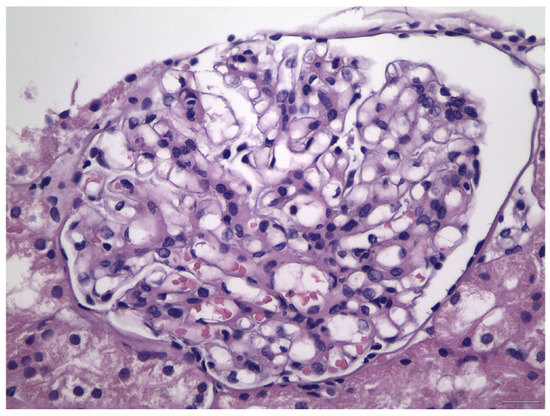29 April 2025 | Tuesday | News

Picture Courtesy | Public Domain
IgA nephropathy (IgAN) is an autoimmune disorder that affects the kidneys by impairing the filtration function of the small blood vessels. It is caused by an abnormal protein that damages the glomeruli, the kidneys' filtering structures. Other IgA nephropathy symptoms may include protein in the urine (proteinuria), swelling in the hands and feet, and high blood pressure. Over time, it can lead to chronic kidney disease if not managed properly. According to DelveInsight, there were 415K prevalent IgAN cases across the 7MM in 2024, with this number expected to grow at a CAGR of 0.6% through 2034.
The IgA nephropathy treatment approach aims to reduce proteinuria, manage blood pressure, and slow the progression of the disease. First-line IgA nephropathy treatment typically involves angiotensin-converting enzyme (ACE) inhibitors or angiotensin receptor blockers (ARBs), with sodium-glucose co-transporter 2 (SGLT2) inhibitors providing added kidney protection. Emerging targeted therapies like sparsentan—a dual endothelin receptor antagonist and angiotensin receptor blocker—and targeted-release budesonide have shown encouraging results. FDA-approved drugs for IgA nephropathy treatment include VANRAFIA (atrasentan), FABHALTA (iptacopan), FILSPARI (sparsentan), and TARPEYO/KINPEYGO (budesonide).
FILSPARI is the first and only once-daily oral therapy for IgA nephropathy that does not suppress the immune system and is approved in both the US and Europe. By blocking endothelin-1 and angiotensin II, it addresses glomerular damage and offers a long-term approach to preserving kidney function. Due to potential safety concerns, access to FILSPARI in the US is regulated through the Risk Evaluation and Mitigation Strategies (REMS) program. In Europe, it is marketed by CSL Vifor, and in Japan by Renalys Pharma. Results from a registration-enabling study are anticipated in the second half of 2025.
In February 2023, the FDA granted accelerated approval for FILSPARI to lower proteinuria in adults with primary IgAN at risk of rapid disease progression, along with a priority review designation. In April 2024, Conditional Marketing Authorization (CMA) was issued by the European Commission for use in adults with IgAN and significant proteinuria. By September 2024, FILSPARI received full FDA approval to slow kidney function decline, supported by positive long-term data from the PROTECT Study. Later, in November 2024, it was also approved by the MHRA in the UK and in Germany for the treatment of primary IgAN.
Budesonide delayed-release capsules, sold under the name TARPEYO in the U.S., are approved for reducing proteinuria in adults with primary IgA nephropathy who are at risk of rapid disease progression. Designed for targeted release in the ileum, the drug helps modulate immune mechanisms associated with IgA pathogenesis, leading to a significant drop in proteinuria and stabilization of kidney function. In Europe, it is marketed as KINPEYGO through a collaboration with STADA Arzneimittel, holding orphan drug designation and market exclusivity through 2032. In Japan, Viatris is developing the drug under the name NEFECON (VR-205), with Phase III data anticipated in 2026.
© 2026 Biopharma Boardroom. All Rights Reserved.